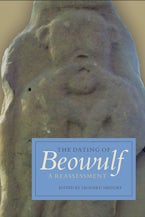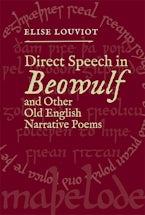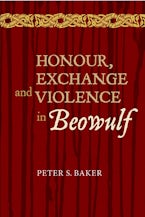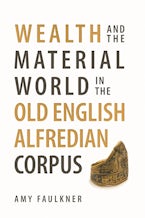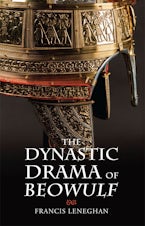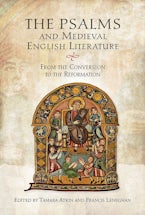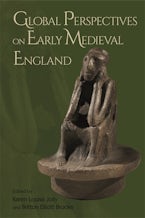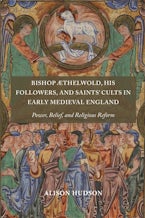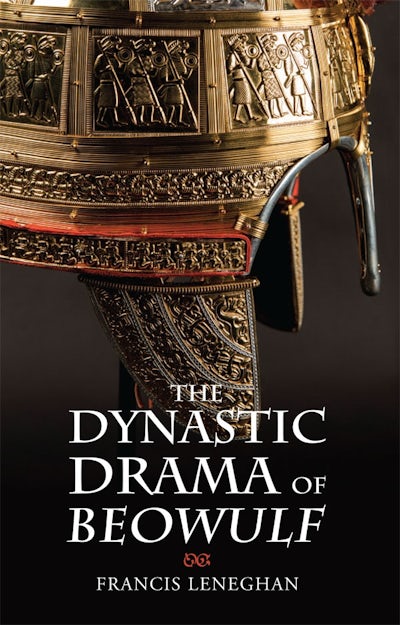
Title Details
323 Pages
23.4 x 15.6 cm
1 b/w illus.
Series: Anglo-Saxon Studies
Series Vol. Number:
39
Imprint: D.S.Brewer
The Dynastic Drama of Beowulf
- Description
- Contents
- Author
- Reviews
A strikingly original approach to Beowulf, linking its structure to the dynastic life-cycle.
The original audience of Beowulf was steeped in ancient Scandinavian royal legend. But for modern readers of the poem, these traditions are frustratingly obscure and confusing.
This book argues that Beowulf is a dynastic drama centred on the fortunes of three great royal houses, the Scyldings, Scylfings and Hrethlings. At the centre of the poem is the Geatish hero, whose adventures provide the link between these three dynasties. By unravelling the web of Scandinavian royal legends known to the work's original audience, the volume allows the modern reader to appreciate better the role of the monsters as portents of dynastic and national crises. It begins by offering a new interpretation of the work's structure based on the principle of the dynastic life-cycle, providing explanations for features of the poem that have never been satisfactorily explained, most famously its many digressions and episodes. Highlighting the work's often-overlooked originality, it then proposes that the poet created a fictionalized monster-slaying hero and inserted him into royal legend in order to dramatize specific moments of dynastic crisis. Finally, it brings into focus the poet's debt to biblical paradigms of kingship and considers how the Anglo-Saxons came to read Beowulf as their own Book of Kings.
The original audience of Beowulf was steeped in ancient Scandinavian royal legend. But for modern readers of the poem, these traditions are frustratingly obscure and confusing.
This book argues that Beowulf is a dynastic drama centred on the fortunes of three great royal houses, the Scyldings, Scylfings and Hrethlings. At the centre of the poem is the Geatish hero, whose adventures provide the link between these three dynasties. By unravelling the web of Scandinavian royal legends known to the work's original audience, the volume allows the modern reader to appreciate better the role of the monsters as portents of dynastic and national crises. It begins by offering a new interpretation of the work's structure based on the principle of the dynastic life-cycle, providing explanations for features of the poem that have never been satisfactorily explained, most famously its many digressions and episodes. Highlighting the work's often-overlooked originality, it then proposes that the poet created a fictionalized monster-slaying hero and inserted him into royal legend in order to dramatize specific moments of dynastic crisis. Finally, it brings into focus the poet's debt to biblical paradigms of kingship and considers how the Anglo-Saxons came to read Beowulf as their own Book of Kings.
Family Trees: The Dynasties of Beowulf
Dramatis Personae
Introduction: Reading Beowulf as a Book of Kings
Chapter One: The Dynastic Life-Cycle and the Structure of the Poem
Chapter Two: Shaping the Dynastic Drama
Chapter Three: The Role of the Monsters in the Dynastic Drama
Chapter Four: Beowulf and Biblical Kingship
Conclusion: Reading the Dynastic Drama in Anglo-Saxon England
Appendices
Bibliography
Dramatis Personae
Introduction: Reading Beowulf as a Book of Kings
Chapter One: The Dynastic Life-Cycle and the Structure of the Poem
Chapter Two: Shaping the Dynastic Drama
Chapter Three: The Role of the Monsters in the Dynastic Drama
Chapter Four: Beowulf and Biblical Kingship
Conclusion: Reading the Dynastic Drama in Anglo-Saxon England
Appendices
Bibliography
"As a thematic study of Beowulf, Dynastic Drama is an outstanding work. [...]. It is certain that Dynastic Drama will continue to be an essential reference work for many years to come." PARERGON
"This is an important work that provides a great deal to consider, discuss and debate." PAUL MORTIMER, WULFHEODENAS
"The Dynastic Drama of Beowulf is a learned and stimulating book that should have a major impact on Beowulf studies. This book does something that has rarely been done before: it develops a coherent interpretation of the entirety of Beowulf through a series of close readings that are philologically and historically plausible. In an era of ephemeral scholarship, Leneghan has triumphed over time and written a book that will last." ANGLIA
"Each chapter, as well as the whole book, is very well organised, which makes his discussion both convincing and easy to follow. The volume deals in detail with many of the major issues that have been debated in earlier scholarship on Beowulf. [...] It will surely become a must-read in the field of Beowulf studies." TOEBI NEWSLETTER
"This rich study offers a compelling reading and will be of great interest to scholars of early medieval thinking about kingship and succession, comparative work on Old English and Scandinavian literature, religious and poetic syncretism, and of course Beowulf itself." Review of English Studies
Hardcover
9781843845515
March 2020
$115.00 / £80.00
Ebook (EPDF)
9781787446786
March 2020
£24.99 / $29.95
Paperback
9781843846291
May 2022
£24.99 / $36.95
Title Details
323 Pages
2.34 x 1.56 cm
1 b/w illus.
Series: Anglo-Saxon Studies
Series Vol. Number:
39
Imprint: D.S.Brewer


